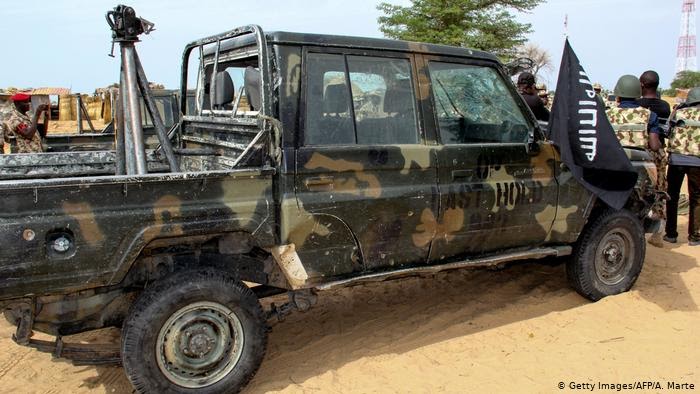Govt Officials, Aid Workers … People Most At Risk During ISWAP Attacks
ISWAP deploys a brutal policy towards persons affiliated with civil authority, which contrast sharply with how they treat the locals in rural, ‘less-Westernised’ communities.

The Islamic State West Africa Province (ISWAP) targets a category of people during attacks on towns and at checkpoints mounted to screen passengers along several roads in north-eastern Nigeria.
Many non-Muslims, security officials and humanitarian workers travelling on roads through hotspots have either been killed or abducted by ISWAP. Past abductees suffered different fates. While some were released, others were later executed or have been kept interminably in captivity.
ISWAP broke away from the Abubakar Shekau-led Boko Haram group in 2016 partly due to ideological differences. But though it was critical of Shekau’s treatment of Muslim civilians outside Boko Haram territory and adopts a less hostile approach, it still exhibits a brutal attitude towards different categories of Muslims, particularly those affiliated to or accused of having affiliation with the government, security forces and humanitarian organisations.
When ISWAP attacks communities
In the event of an ISWAP attack on a community, teachers, aid workers, civil servants and members of the local Civilian Joint Task Force (CJTF) face the risk of summary execution or abduction.
According to sources, even people who identified as Muslim are targeted by ISWAP fighters once they teach, attend school, are government officials, or work for non-governmental organisations.
This category of individuals, HumAngle gathered, must flee in the event of a terrorist attack.
HumAngle learned that in Geidam, ISWAP distributed leaflets stating their objectives, who they considered a target, and an invitation for locals to join their ranks.
Despite the wide use of multimedia tools and social media for the dissemination of propaganda, ISWAP occasionally employs the traditional approach of using leaflets to convey messages to the local population as seen recently in Geidam and last year in Monguno and Buni Gari.
Teachers, aid workers, and civilians with links to governments were targeted during the terror group’s days-long siege on Geidam, a town in Yobe State, located near the border with neighbouring Borno State and Niger Republic.
Rawana Usman, a survivor who escaped to a neighbouring village on Sunday, April 25, told Daily Trust that he had no intention of leaving his house but later changed his mind when he learnt that the terrorists slaughtered two Christians working with an NGO from his neighbourhood.
“They were going round houses targeting Christians, NGO (aid) workers and those that are educated in the western schools,” Usman said.
“When I heard of the selective killings, I couldn’t resist, I left abruptly. I can say that there were soldiers engaging them. They have been doing their best to push out the terrorists, but I can tell you that these boys were moving normally in the town up to the time I left,” he added.
The Chairman of the local government, Ali Kolo Geidam, said the insurgents slaughtered two people on Sunday morning including a teacher in Kawuri Primary School, Mallam Baba Tazira.
Members and facilities of the Military, Police, and Civil Joint Task Force are also part of the primary target of the group during ambushes and raids.
The activities of the various Boko Haram factions, including ISWAP, have collectively led to over 37,500 deaths, displaced over 2.5 million, and left about 8.7 million people in need of humanitarian assistance.
Support Our Journalism
There are millions of ordinary people affected by conflict in Africa whose stories are missing in the mainstream media. HumAngle is determined to tell those challenging and under-reported stories, hoping that the people impacted by these conflicts will find the safety and security they deserve.
To ensure that we continue to provide public service coverage, we have a small favour to ask you. We want you to be part of our journalistic endeavour by contributing a token to us.
Your donation will further promote a robust, free, and independent media.
Donate HereStay Closer To The Stories That Matter




